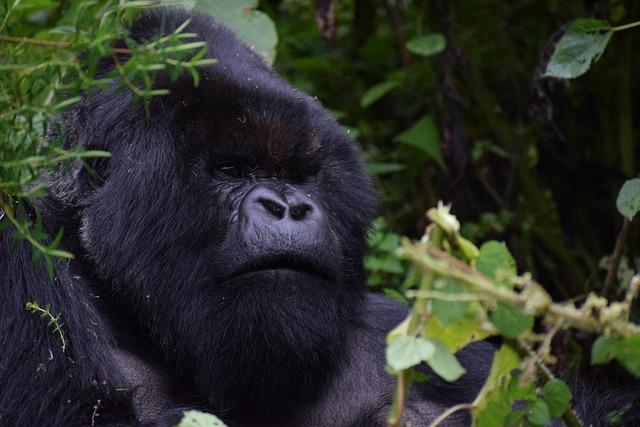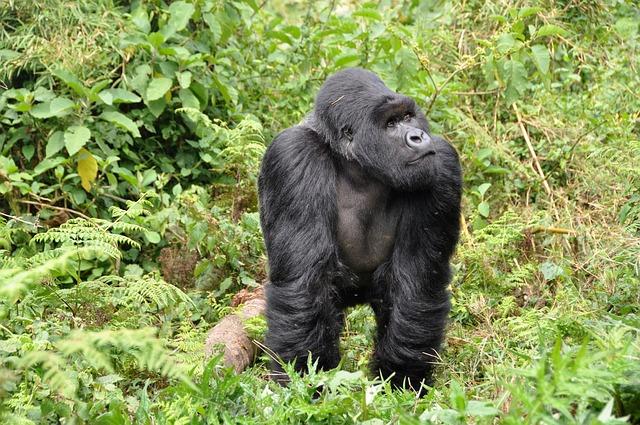Rwanda’s geopolitical landscape is one marked by a complex tapestry of past grievances, ethnic divisions, and strategic ambitions.Over the years, the nation has grappled with strained relations with its neighbors, notably Uganda and the Democratic Republic of the Congo (DRC). These tensions come against a backdrop of a rapidly evolving regional context, where economic partnerships and security concerns often clash with lingering animosities rooted in past conflicts. As rwanda seeks to assert its influence and secure its borders, the delicate balance of diplomacy in the Great Lakes region becomes increasingly precarious. This article delves into the factors contributing to Rwanda’s fraught relationships with its neighbors, examining both the historical underpinnings and the contemporary implications of these dynamics on stability and cooperation in Africa.
Rwanda’s Historical Context: Understanding the Roots of Regional Tensions
The historical landscape of Rwanda is marked by profound events that have shaped not only its national identity but also its relationships with neighboring countries. The colonial legacy, particularly the implications of Belgian rule, sowed seeds of division by fostering ethnic identities that laid the groundwork for future conflicts. The arbitrary classification of the population into Hutu and Tutsi groups fueled animosities, leading to cycles of violence that erupted into the 1994 genocide. This tragic chapter, where approximately 800,000 people lost their lives, exacerbated tensions not only internally but also in the wider Great Lakes region. The aftermath of the genocide saw a mass exodus of Hutu refugees into neighboring countries, creating a humanitarian crisis that affected relations and security dynamics across borders.
In the years following the genocide, Rwanda’s efforts to stabilize and rebuild have been met with complex regional challenges. Key issues contributing to strained relations include:
- The presence of armed groups and militias in bordering nations that threaten Rwanda’s security.
- Historical grievances stemming from refugee crises and cross-border repatriation issues.
- Competition for resources among surrounding countries,intensified by changing climate conditions and economic pressures.
As Rwanda positions itself as a leader in East Africa, navigating these tensions requires a delicate balance of fostering bilateral relations while addressing historical injustices and contemporary security threats.The interplay of these factors continues to influence Rwanda’s foreign policy and its approach to regional cooperation, complicating the path toward lasting peace and stability.

Current Dynamics: Analyzing Rwanda’s Diplomatic Relations with Neighbors
The geopolitical landscape surrounding Rwanda is complex, shaped by a myriad of historical grievances, economic ambitions, and security concerns. Rwanda‚Äôs relationships with its neighbors‚ÄĒincluding Uganda, Burundi, and the Democratic Republic of the Congo (DRC)‚ÄĒare a balancing act of cooperation and tension. Uganda, once a close ally, has recently seen a deterioration due to accusations of espionage and support for rebel groups. Burundi, on the other hand, has been embroiled in its own political turmoil, further complicating bilateral relations. The DRC remains a focal point for Rwanda‚Äôs foreign policy, as shared economic interests are frequently enough overshadowed by conflicts stemming from armed groups operating in the eastern regions of the DRC, which Rwanda perceives as threats to its national security.
To better understand the dynamics at play, consider the following key factors that influence Rwanda’s diplomatic relations with these countries:
- Historical Conflicts: Past tensions, particularly the Rwandan Genocide and regional wars, leave a lasting impact on bilateral ties.
- Economic Interests: Rwanda’s ambitions to become a regional trade hub bring both opportunities and friction.
- Security Concerns: The instability in neighboring countries often spills over into Rwanda, prompting a defensive diplomatic posture.
- International Alignment: Rwanda’s partnerships with international powers can not only bolster its position but also alienate its neighbors.

Economic Implications: Trade Relations and cross-Border cooperation Challenges
Rwanda‚Äôs economic landscape is increasingly influenced by its strained relations with neighboring countries, notably Uganda and Burundi. Tensions over trade routes have significant implications for Rwanda’s economy,hindering cross-border cooperation that is essential for regional development. The ongoing disputes result in heightened tariffs and non-tariff barriers, which create an environment of uncertainty for businesses engaged in international trade. As a landlocked nation, Rwanda heavily relies on its neighbors for access to ports and markets; thus, disruptions in these relations inevitably lead to increased costs for imports and exports, impacting local economies.
moreover, the challenges seen in diplomatic ties can hinder collaborative projects aimed at boosting trade and economic integration.Key initiatives, such as the East African Community (EAC) efforts, are at risk when conflicts arise. Critical issues include:
- Disputes over trade agreements: Regulatory inconsistencies and lack of mutual trust complicate compliance with existing accords.
- Increased smuggling: High tariffs push legitimate trade into informal channels, leading to revenue losses for governments.
- Investment hesitancy: Investors are frequently enough wary of entering markets where political stability is questionable, stifling economic growth.
| Country | Trade Volume with Rwanda (2022) |
|---|---|
| Uganda | $200 million |
| Burundi | $75 million |
| Tanzania | $150 million |
In light of these factors, Rwanda faces an uphill battle in fostering economic growth through stable trade relations. Building trust through diplomatic engagements and fostering an atmosphere of economic cooperation may help alleviate some of these issues, enabling Rwanda to benefit from its strategic position within the region. Strengthening bilateral ties could lead to enhanced investment opportunities and pave the way for a more integrated East African marketplace.

Security Concerns: The Role of Regional Conflicts in Rwanda’s Foreign Policy
Rwanda’s foreign policy is heavily influenced by the precarious regional security landscape, where historical grievances and ongoing tensions dictate diplomatic relations. Regional conflicts have become a lens through which Rwanda assesses threats,frequently enough leading to a foreign policy that prioritizes military readiness and strategic alliances. The nation’s experience during the 1994 genocide not only shaped its domestic policies but also instilled a need for vigilance regarding its borders. Rwanda views itself as a stabilizing force in the tumultuous Great Lakes region, often intervening in conflicts in neighboring countries such as the Democratic Republic of the Congo (DRC), a move that is both criticized and praised. The rationale behind these interventions is frequently enough framed around the protection of Rwandan citizens and the promotion of regional stability.
In navigating these complex relationships, Rwanda has developed a multifaceted approach to diplomacy.Engagement can oscillate between cooperation and confrontation, depending on the perceived threats emanating from neighboring nations. Key elements influencing this dynamic include:
- Historical Ties: Lingering animosities from the colonial era and the genocide have left deep scars, affecting bilateral relations.
- Economic interests: Rwanda seeks stability to foster economic growth,particularly in trade with countries like Uganda and Tanzania.
- Security Alliances: The country has formed strategic partnerships, particularly with the African Union and United Nations, to bolster peacekeeping efforts.
Ultimately, Rwanda’s foreign policy cannot be divorced from the regional conflicts that shape it. The interplay of security considerations and national interest drives diplomatic engagements, often blurring the lines between ally and adversary. As the regional landscape continues to evolve, Rwanda’s approach will likely adapt, balancing assertive defense capabilities with diplomatic overtures, all in the name of ensuring a secure home front.

Path Forward: Strategic Recommendations for Improving Regional Cooperation
In order to foster a more cooperative regional environment, several strategic initiatives should be prioritized. First and foremost, diplomatic engagement should be enhanced through regular multilateral forums that bring together regional leaders to discuss pressing issues.This could involve:
- Establishing a framework for conflict resolution to address emerging tensions swiftly.
- Incorporating economic partnerships to promote trade and investment across borders.
- Encouraging people-to-people connections to build trust and understanding among diverse populations.
Secondly, creating platforms for joint security initiatives can significantly mitigate concerns about national security threats. Regional countries must work together to share intelligence and coordinate responses to common challenges such as terrorism and cross-border crime. A structured approach could include:
- Forming a regional security task force to respond collectively to crises.
- Implementing joint training programs for security personnel in peacekeeping and conflict management.
- Establishing a shared database for monitoring and responding to security data.
Insights and Conclusions
Rwanda’s intricate web of relationships with its neighboring countries underscores the complexities of regional dynamics in east Africa. While historical grievances, security concerns, and economic ambitions often shape these interactions, the potential for collaboration and mutual growth remains ever-present. As Rwanda seeks to assert itself as a key player on the continental stage, it must navigate these strained ties with careful diplomacy and strategic foresight. understanding the evolving nature of these relationships is critical not only for Rwanda but also for the broader stability and prosperity of the region. As we move forward, it will be imperative to monitor how these dynamics unfold, and weather Rwanda can transform its challenges into opportunities for building stronger ties with its neighbors, fostering a more cohesive East African community. Only time will tell if Rwanda can reconcile its past with its aspirations for the future, but one thing is clear: the journey ahead will require a commitment to dialog, understanding, and shared vision.







